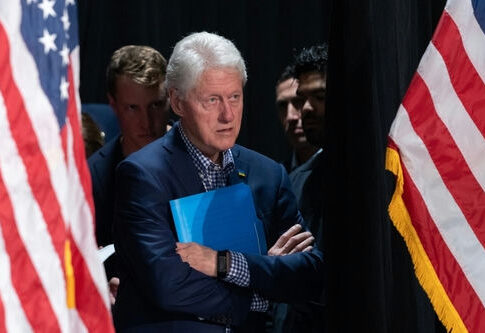America just subpoenaed two former occupants of the White House, demanding answers about what they knew—and when—about Jeffrey Epstein’s shadowy world, setting off a spectacle that could upend notions of power and accountability at the highest levels.
Congress Targets the Pinnacle of Power
On August 5, 2025, the House Oversight Committee escalated its probe into the federal government’s handling of Jeffrey Epstein’s case by issuing subpoenas to none other than Bill and Hillary Clinton. The committee, chaired by James Comer, also targeted a roster of former Attorneys General and FBI Directors. All are commanded to testify about what the government did—and didn’t do—when it came to Epstein’s alleged trafficking network. The Department of Justice was simultaneously ordered to turn over the complete, unredacted “Epstein Files,” with a hard deadline set for August 19. The message from Congress: no one is above scrutiny, no matter how high their office or how storied their resume.
For decades, Epstein’s connections to the powerful were whispered about but rarely confronted in public. Now, with Congress wielding its oversight power, those whispers are being dragged under the fluorescent glare of subpoenas and deposition rooms. The scope of the investigation reaches across several administrations, implicating leaders from both major parties, and making the political implications as unpredictable as they are explosive.
Bipartisan Demand for Transparency Shakes Washington
This isn’t a one-party crusade. The Oversight Committee’s move to subpoena the Clintons and other officials drew bipartisan support, a rarity in the modern era. Some Republicans joined Democrats in voting to demand maximum transparency, suggesting a shared recognition that the Epstein saga transcends partisan interests. The committee is not just seeking heavily redacted documents, as has too often been the case in past investigations—it wants every page, every name, every detail, and it wants them now. This insistence on unfiltered disclosure could set a new precedent for congressional oversight, forcing federal agencies to open their vaults wider than ever before.
The focus on bipartisan action is not trivial. By casting a net that includes officials from multiple administrations—Republican and Democrat alike—the committee is inviting the nation to see this as a quest for truth, not a partisan witch hunt. Still, the stakes are high for both parties: any revelations could damage reputations and careers, no matter on which side of the aisle they sit.
High-Profile Depositions, Public Pressure, and Legal Chess
The timeline is tight and the pressure intense. Depositions for the Clintons and other former top officials are scheduled to unfold between August and October 2025. The Department of Justice, under Attorney General Pam Bondi, faces mounting pressure to comply with the document demands. If history is any guide, legal resistance may follow, pitting congressional investigators against powerful institutional and political interests. The public, already wary after years of redacted releases and unanswered questions, is demanding accountability—and Congress appears determined to deliver it.
Epstein’s victims and their advocates see this moment as a potential turning point. Full access to the “Epstein Files” could finally illuminate who enabled his crimes and who, if anyone, shielded him from justice. But for those subpoenaed, the risks are equally real: reputations, legacies, and even legal liability may hang in the balance. For the broader public, the episode is a litmus test for whether elite networks can still count on their power to evade uncomfortable truths.
Repercussions for Justice, Politics, and Public Trust
Short-term, the subpoenas have unleashed a media firestorm and triggered speculation about possible legal fights over compliance. Longer-term, this investigation could fundamentally alter the boundaries of congressional authority, especially regarding access to sensitive law enforcement files. If the committee succeeds, future oversight investigations may be emboldened to demand—and actually receive—unredacted records concerning even the most protected political figures.
For Epstein’s victims, the stakes are deeply personal. For the political class, they are existential. For the nation, the spectacle unfolding in Washington is a test of whether transparency and accountability can prevail over secrecy and privilege. The coming months promise more twists, more revelations, and perhaps, for the first time, real answers to questions that have haunted the country for years.

